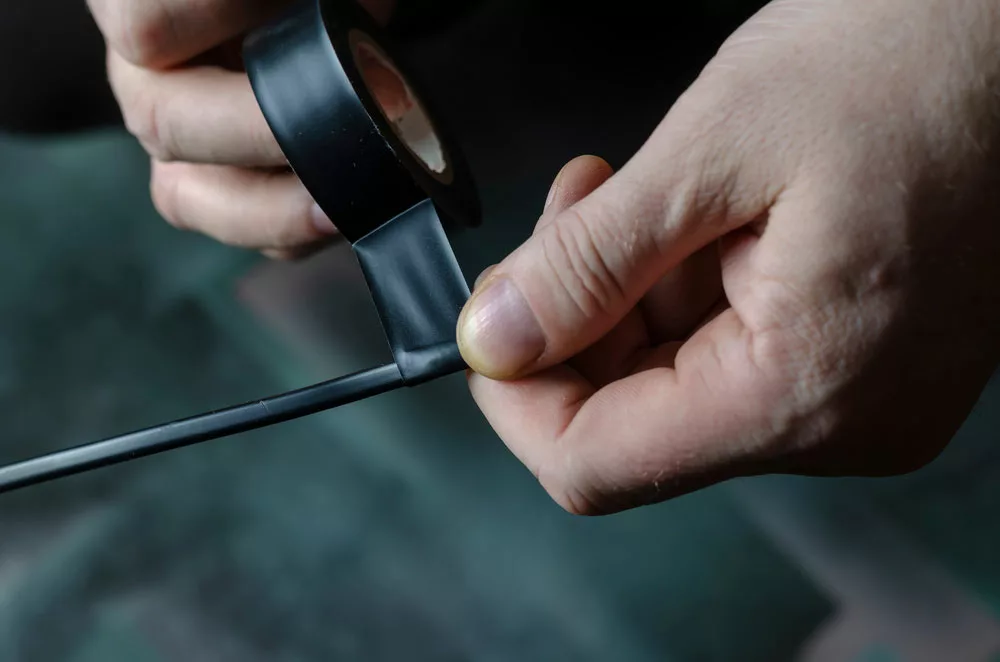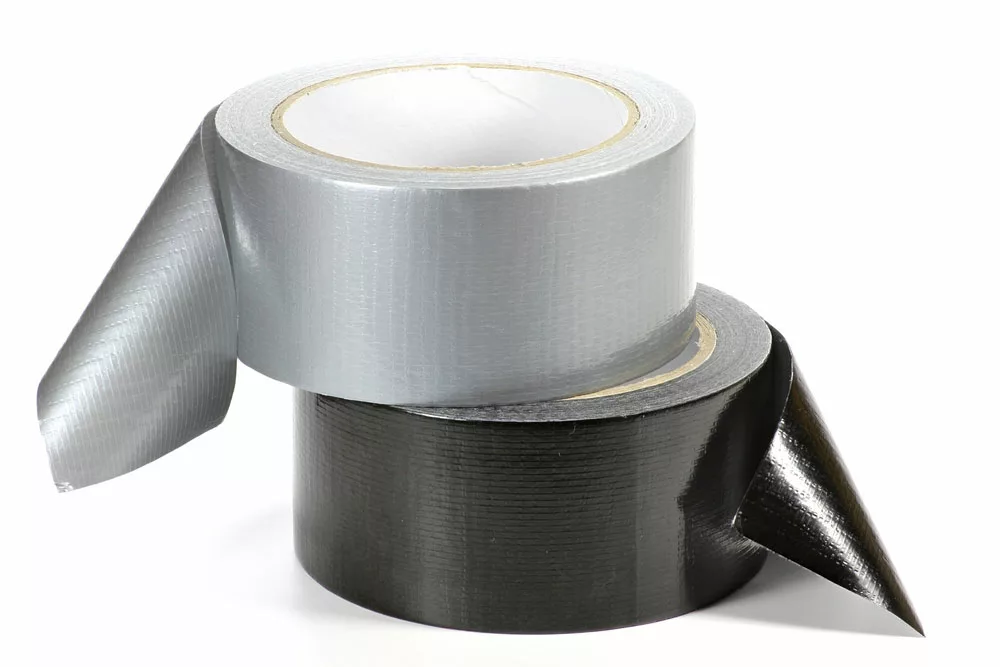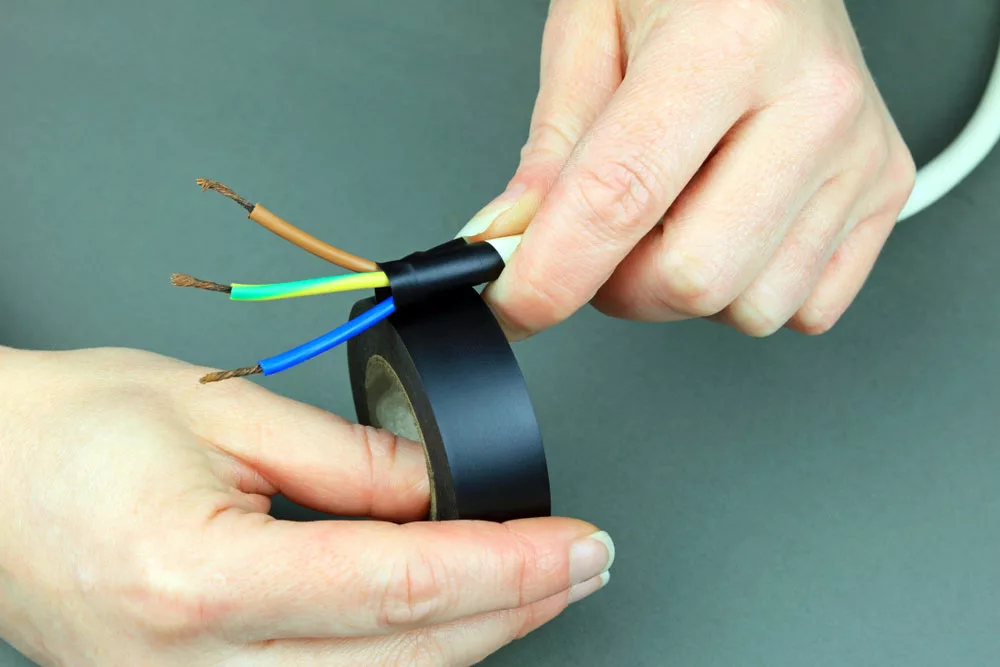It’s common to find yourself in situations where you don’t have the necessary tools. For example, If you run out of electrical tape, you’ll look to close alternatives like duct tape for quick solutions. But can you use duct tape for electrical wire?
While it’s tempting to substitute them, don’t use duct tape as an alternative to electrical tape. After all, it doesn’t have the necessary properties to secure wired connections. Also, it may cause several complications and accidents.
But that’s not the only reason you shouldn’t use duct tape for electrical connections. This article will discuss why and explore the differences between these tape types.
Table of Contents
- What Happens if You Use Duct Tape for Electrical Works?
- What are the Differences between Duct tape and Electrical tape?
- Is Electrical Tape Inflammable?
- Super 33 vs. Super 88: Which One Should You Use?
- How can I Use Electrical Tapes Properly?
- Final Words
What Happens if You Use Duct Tape for Electrical Works?

Workers using duct tape
What would happen if you used duct tape instead of electrical tape? At first, nothing. Everything will look normal, and you’d think, “It worked!”
However, a few minutes in, you would feel heat accumulating due to the flowing voltage. Afterward, the adhesives will start melting and looking messy. If you leave it past this point, the duct tape’s strengthening fibers will burst into flames.
In short, it’s a bad idea to consider using duct tape instead of electrical tape. It’s an unsafe alternative due to a lack of electrical insulation and zero protection against live currents.
What are the Differences between Duct tape and Electrical tape?

A person using an electrical tape
Let’s look at some factors that make duct tape less than perfect for electrical applications.
Adhesion
Typically, duct tape can stick to surfaces ranging from brick to wood. But it’s not the same for the electrical tape. Electrical tape has stretchy qualities and can adhere to itself, making it perfect for insulated wiring.
Colors

Black and gray duct tapes
You can get duct tape in almost any color you want. But it’s strictly cosmetic and won’t offer any added functionality.
In contrast, black is the most common color for electrical tape. And other colors correspond with traditional wire palettes. So, for example, white is for neutral, green is for ground, etc.
Materials

Hands applying electrical tape on a cable
Manufacturers make electrical tape from flexible vinyl or PVC and duct tape from thin polyethylene-coated cloth with interspersed fibers. Fortunately, this unique material makes duct tape easy to tear without tools and provides superb strength.
But unlike electrical tape materials, duct tape’s polyethylene-coated cloth is flammable and weak to extended exposure to heat (or electricity).
Durability, Heat, and Moisture Resistance
As mentioned earlier, duct tape offers a strong adhesive that deteriorates quickly, especially when exposed to heat or water. In contrast, electrical tapes can withstand heat and moisture, which boosts their durability. However, it is not waterproof.
Depending on your usage, you can use electrical tape for about five years. But it won’t be good anymore if it feels too gummy or brittle.
Strength
Although strength is one of the duct tape’s strong points, it’s not a benefit that’s particularly useful for electrical projects. In truth, the electrical tape doesn’t need high tensile strength since its role is insulation.
Is Electrical Tape Inflammable?

Three colored electrical tape rolls
Electrical tape hosts high heat resistance ut can still burst into flames when overheating occurs. Further, most recent variants can handle up to 80 degrees Celsius, and most home electrical applications won’t reach such temperatures.
As a result, you’ll be safe using electrical tape from reputable brands for your projects.
Super 33 vs. Super 88: Which One Should You Use?

A man fixing wires with electrical tape
You can purchase two types of electrical tape, including super 33 and super 88. However, the primary difference between these two is their thickness.
While super 33 offers 7-millimeters thickness, super 88 provides 8.5-millimeters. Moreover, most applications don’t require anything more than super 33, so you won’t need an upgrade to super 88.
How can I Use Electrical Tapes Properly?
Always use electrical tape with wire nuts and other electrical-specific fasteners. While it’s fantastic for supplying an extra protective layer, you should never use it to secure wires to wire nuts. In other words, the wire nut should do all the holding.
If it doesn’t hold, try other wire nut sizes until you find the one that feels secure. But why can’t you use electrical tape alone? Well, you can think of them as temporary patches. Although they may be perfect for covering surface applications, you shouldn’t use them for major repairs.
Unfortunately, electrical tape is not strong enough to make permanent connections between two wires, like those in junction boxes or light switches. In addition, wire nuts are necessary for safety when connecting two wires, meaning electrical tape will never be enough on its own.
Final Words
Duct tape is a popular adhesive option that offers incredible tensile strength and easy-to-use properties. But, regardless of these benefits, they’re not suited for electrical applications.
So, you can’t use duct tape to secure wire connections for various reasons. For starters, it’s susceptible to high temperatures and will become a fire hazard quickly.
You can use electrical tapes to satisfy all your electrical wire needs. However, we recommend focusing on alternatives like wire nuts, heat shrink tubing, scotch tape, and masking tape if you don’t have the electrical tape.
Was the information helpful? Or do you have more questions on this topic? Don’t hesitate to contact us, and we’ll be happy to help.
